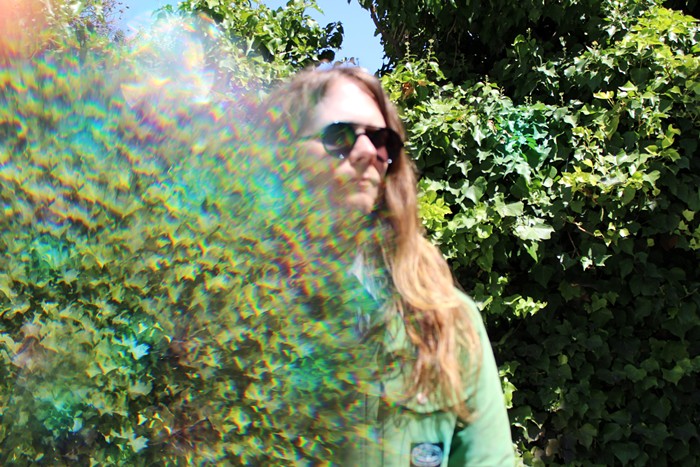I had pretty great neighbors growing up. On one side was the kind, elderly Persian couple whose grandson frequently visited them and became my primary bike-riding and nacho-eating buddy. On the other was the Scientologist family with the scruffy dog and the massive trampoline they sometimes let me jump on. Nonetheless, I can't help but feel that the neighborhood of my youth pales in comparison to the one that folks living around the intersection of NE 42nd and Sumner are lucky enough to call home. This is because these four corners are dotted not just with houses and apartment complexes but, in the grand tradition of Portland livability, with a handful of local business, including the all-ages art-and-music exhibition space Rererato. Unfortunately, that may soon change.
Responding to a complaint about Rererato serving food and generating noise, the city recently dispatched an inspector to investigate. While nothing came of these particular allegations, as a result of this inspection the zoning status of the building Rererato occupies came under scrutiny. The block on which the art space sits was zoned for residential use in 1981, but many of the buildings on that stretch of 42nd have been used for commercial purposes since before that time, and are grandfathered out of the residential-only zoning if it can be verified that they have continuously functioned as something other than houses.
Over the years, the building currently housing Rererato has been many things, including a video store and a Hare Krishna temple, but Chris Radcliffe, an artist and Burning Man co-originator who purchased the property in March 2007 and began renting to Rererato soon thereafter, has been unable to account for the period from 2000-2007. Unless he can dig up documents proving his building's consistent non-residential use by February 25, he will be fined as much as $1,000 a day for being in violation of zoning code until Rererato closes its doors to the public.
Further complicating the zoning situation is the fact that Rererato does not charge admission for shows and exhibits (although donations are solicited), and the dynamic duo that runs the space, Adam Keller and Stephanie Simek, live in the basement. This being the case, Rererato events bear more of a resemblance to particularly open and artsy domestic parties than to business endeavors.
Radcliffe explains, "The city was concerned that Rererato was a commercial enterprise. I explained that there was no commercial activity. That Rererato was operating an art salon under the French Belle Époque model; that the only commerce was in ideas. And that it was no different than any type of open studio program. They said they would consider that, but then decided it was not a model that they could define under the zoning code."
Losing Rererato would be sad for our city indeed, not just because it is one of the only places in Portland that consistently presents experimental music to people of all ages for free, but also because, unlike many commercial venues and galleries, it is an active participant in the life of its neighborhood. Many of us choose to live in Portland precisely because of the block-by-block communities made possible by mixed zoning and community-oriented local establishments like Rererato.
Join many of Rererato's neighbors in expressing your support for its continued existence by emailing Joe Chamberlain, the city employee managing the case: chamberlainj@ci.portland.or.us.


















